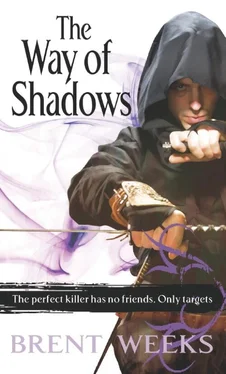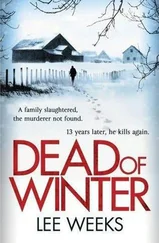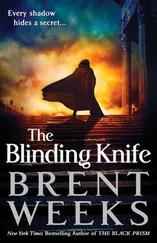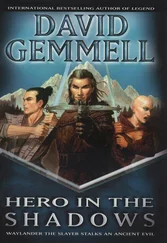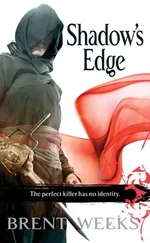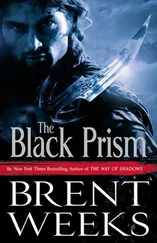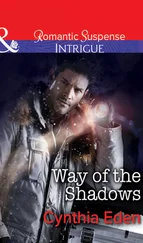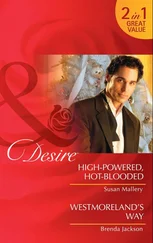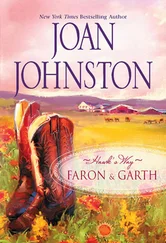Brent Weeks - Way of Shadows
Здесь есть возможность читать онлайн «Brent Weeks - Way of Shadows» весь текст электронной книги совершенно бесплатно (целиком полную версию без сокращений). В некоторых случаях можно слушать аудио, скачать через торрент в формате fb2 и присутствует краткое содержание. Жанр: Фэнтези, на английском языке. Описание произведения, (предисловие) а так же отзывы посетителей доступны на портале библиотеки ЛибКат.
- Название:Way of Shadows
- Автор:
- Жанр:
- Год:неизвестен
- ISBN:нет данных
- Рейтинг книги:5 / 5. Голосов: 1
-
Избранное:Добавить в избранное
- Отзывы:
-
Ваша оценка:
- 100
- 1
- 2
- 3
- 4
- 5
Way of Shadows: краткое содержание, описание и аннотация
Предлагаем к чтению аннотацию, описание, краткое содержание или предисловие (зависит от того, что написал сам автор книги «Way of Shadows»). Если вы не нашли необходимую информацию о книге — напишите в комментариях, мы постараемся отыскать её.
For Kylar Stern, just surviving is a struggle. As a guild rat, he's learned to judge people quickly - and to take risks. Risks like apprenticing himself to Durzo Blint.
But to be accepted, he must turn his back on everything he has ever known.
Way of Shadows — читать онлайн бесплатно полную книгу (весь текст) целиком
Ниже представлен текст книги, разбитый по страницам. Система сохранения места последней прочитанной страницы, позволяет с удобством читать онлайн бесплатно книгу «Way of Shadows», без необходимости каждый раз заново искать на чём Вы остановились. Поставьте закладку, и сможете в любой момент перейти на страницу, на которой закончили чтение.
Интервал:
Закладка:
Thanks to everyone over the years who, on finding out I was a writer, didn’t ask, “Oh, are you published?”
Last, thanks to you, curious reader who reads acknowledgments. You do realize the only people who usually read acknowledgments are looking for their own name, right? If you’re quirky enough to read acknowledgments without knowing the author, you and I are going to get along fine. Picking up a book by an author you’ve never read is a leap of faith. Here’s my offer: you give me a couple of pages, and I’ll give you a helluva ride.
Meet the author
BRENT WEEKS was born and raised in Montana. After getting his paper keys from Hillsdale College, Brent had brief stints walking the earth like Caine from Kung Fu , tending bar, and corrupting the youth. (Not at the same time.) He started writing on bar napkins, then on lesson plans, then full time. Eventually, someone paid him for it. Brent lives in Oregon with his wife, Kristi. He doesn’t own cats or wear a ponytail. Find out more about the author at www.brentweeks.com.
Interview
What professions were you involved with before becoming a writer?
I came to writing backwards, by which I mean directly. Most writers have a long list of strange jobs they held before they settled into writing. I’ve known I wanted to be a novelist since I was thirteen. I figured that instead of doing something practical that made money until I was old enough to have the leisure to try, I’d just try. To support myself, I worked as a bartender and then as an English teacher. When we married, my wife and I decided I would write full-time. Unless your spouse thinks being poor is romantic and is tremendously patient, unbelievably supportive, and basically unconcerned about owning toys, this is a recipe for disaster. For us, it worked.
Do you mainly read fantasy fiction or are there other genres that you enjoy?
Fantasy is my first love, but like most writers my reading habits are fairly promiscuous. I love reading history because it breaks you free of some of your own culture’s preconceptions while staying within the bounds of human psychology. If you read something totally outlandish in a fantasy novel, you think, meh, whatever . If you read something totally outlandish in history, you think, how did that happen? How did people accept that? It’s also fun because you find places where other novelists have “borrowed.” I was reading about the Borgias in sixteenth-century Italy and it slapped me in the face—Pope Alexander VII was the Godfather, complete with dysfunctional kids. I checked into it, and Mario Puzo readily admits it. I also dabble with mysteries and whatever’s on the best-seller rack, and I’m a recovering literature major.
The Night Angel Trilogy has a very dark and gritty concept. How did you derive the idea for it?
There are a lot of answers to this question.
First, few writers admit this, but coming up with ideas is the hard part of writing. I pay a guy in Bulgaria to do it for me. Then I do the easy part and make a novel out of it. No, actually, ideas come from a secret email discussion list in New York City. You can’t get on the list until you’re published, but you can’t get published until you’re on the list.
Second, the darkest part of the trilogy is near the beginning of The Way of Shadows, where we see the abuse of children. At the time I started the trilogy, my wife (who has an MA in Counseling) was working with children who’ve been molested and who then act out sexually. Without help, these kids often become abusers themselves. The very idea of an eight-year-old kid abusing a five-year-old is monstrous. Is an eight-year-old capable of evil? Is an adult abuser too deeply wounded himself to be held accountable for the deep wounds he inflicts? How about an adolescent? Where’s the line? My wife shared only a little of what she heard, both for my sake and for confidentiality, but it was clear that this was evil. That abuse is so common in a society where children have as much supervision as they do in ours is frightening. I extended that only a little bit to what might happen in a gang with no responsible authority figures—and, quite honestly, then I toned it down. Incidentally, in an LA Times feature on gangs this year, one gang member claimed that sexual abuse is rampant in today’s gangs, but such a taboo that you don’t even hear about it in hardcore gangsta rap. He claimed 90 percent of young men in gangs have been abused, and virtually all the girls. If he’s even close to correct, I think sexual abuse is a huge component of why these kids are willing to obliterate themselves with drugs, to die, and to kill.
Third, calling these books dark and gritty is like saying George Clooney was an ugly kid voted least likely to succeed. Well, maybe he was, but that’s not the whole story. There is darkness and grit in these books, but I think that’s balanced and ultimately overcome with hope and redemption. It’s simply a matter of whether you think hope is wan and weak, or robust. Is your idea of hope when a brilliant girl who does all her homework wants to ace a test? Is your idea of redemption turning in a coupon at the grocery store? Hope isn’t vibrant unless it has to be chosen over despair. Redemption is cheap unless there’s a suffocating darkness in which even a hero is tempted to hide. I see these books as a fight to escape from darkness to light, which is reflected in the titles. So yes, the books start in a place that’s dark and gritty because without that, light and peace are meaningless, worthless, boring.
Who/what were your influences in creating the trilogy?
Stephen J. Cannell once said that whenever writers get asked about their influences “out comes the list of dead writers.” So Eliot-and-Steinbeck-and-de-Beauvoir- and-Chekhov-and-Foucault-and-Yeats-and-Kierkegaard is probably the right answer—but it’s not true. My major influences aren’t even obscure. There goes my street cred. Thanks, now the only people who will talk to me at conventions will be the Klingons.
Tolkien sucked me into this world when I was young. I found it very irritating that he gave me this huge love for fantasy, and then only wrote four novels. I’d go read other fantasy, and most of it was sooo bad that I’d come back and reread the Lord of the Rings. Then Robert Jordan came along. My first novel, at age thirteen, was perilously close to plagiarizing him, and it took me a long time to escape from his shadow. George R. R. Martin is another giant. He showed me that if you actually kill or maim a major character or two, the next time you put a major character in danger, readers worry. Writing children—especially smart ones—is a huge challenge because it’s so easy to make them precocious and precious, so I love Orson Scott Card’s work. I believe he called his vision “relentlessly plain”: children are young, not stupid; innocent because of lack of exposure, not paragons of virtue.
I was really trying to avoid mentioning this one, but I have to admit a Shakespeare influence. There, I said it. His characters, even his villains, are so conflicted they’re fascinating. I even borrowed a Shakespearean king’s dilemma over what to do with a law-breaking friend.
Do you have a favorite character? If so, why?
I have to admit I love Durzo Blint. He’s just so bad. I was reading an article the other day about characters who are strong, charming, relentless in their pursuit of their goals, and willing to use people because they don’t have the weakness of empathy. In fiction, they’re often called heroes. Think James Bond. Psychology has another name for them: sociopaths. I wanted to create a strong, ruthless character who wasn’t a sociopath. Blint is so strong and so conflicted he’s fascinating to write. He doesn’t care if he pisses people off. He’s got no time for lies and illusions—yet he lives lies and illusions. He’s raw; there are cracks in the façade. He’s a puzzle because he’s done so much good and so much evil in his life, but try to find a great historical figure who didn’t. Constantine preserved the Roman Empire and slaughtered thirty thousand people for holding a rally against him; Washington and Jefferson founded a nation on the principle that all men are created equal but owned slaves; Abraham Lincoln was racist; Martin King Luther Jr. and JFK cheated on their wives. Obviously, these run the gamut of seriousness depending on what each of us values and excuses, but all of them require excuse. Durzo believes he’s a worse person than he is, and that only comes from a person who has a deep moral sense.
Читать дальшеИнтервал:
Закладка:
Похожие книги на «Way of Shadows»
Представляем Вашему вниманию похожие книги на «Way of Shadows» списком для выбора. Мы отобрали схожую по названию и смыслу литературу в надежде предоставить читателям больше вариантов отыскать новые, интересные, ещё непрочитанные произведения.
Обсуждение, отзывы о книге «Way of Shadows» и просто собственные мнения читателей. Оставьте ваши комментарии, напишите, что Вы думаете о произведении, его смысле или главных героях. Укажите что конкретно понравилось, а что нет, и почему Вы так считаете.
